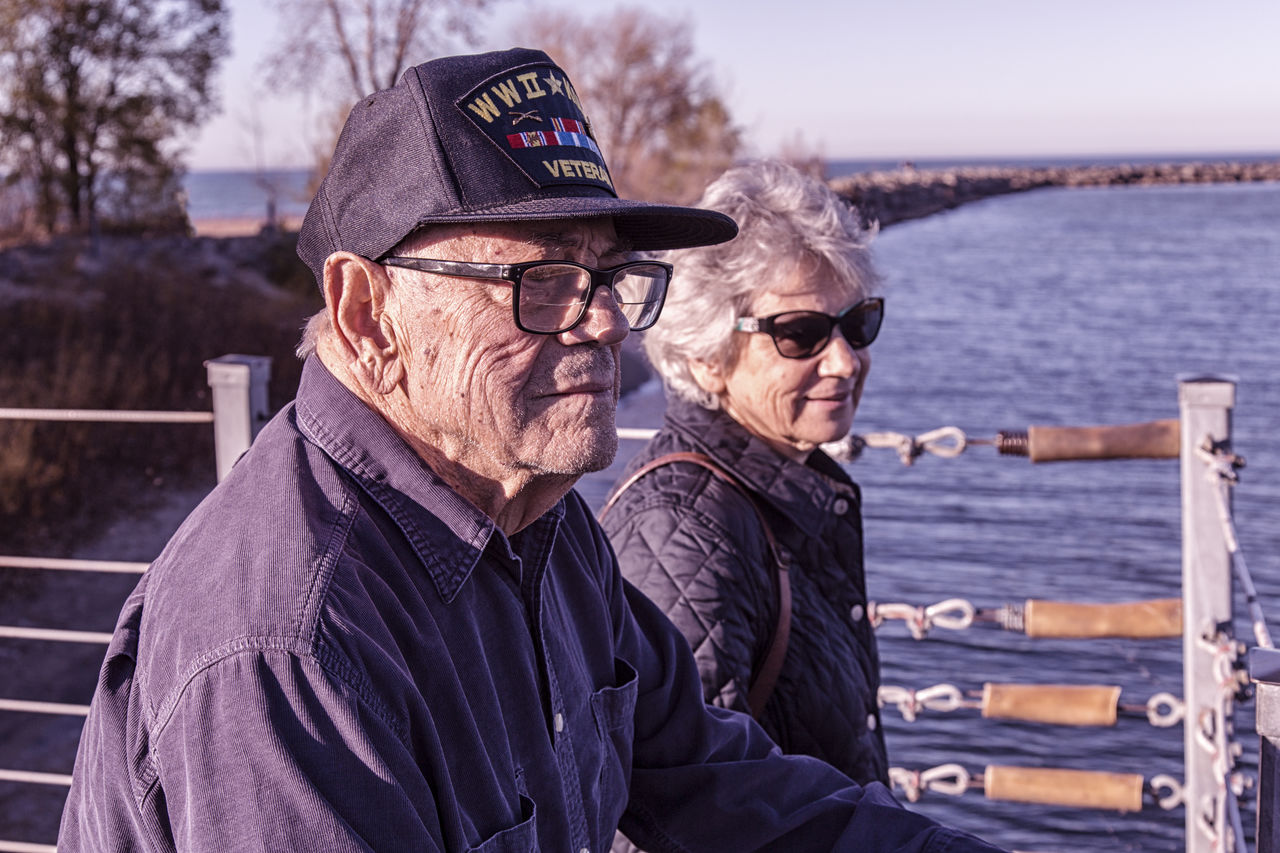AARP Hearing Center

Communities nationwide are facing new challenges given the global pandemic. While all Americans are making changes to their daily lives, we know that older adults and those with chronic health conditions, many of whom are wounded, ill, or injured service members and veterans, are at higher risk for serious illness and complications from the coronavirus.
With 5.5 million military and veteran caregivers providing loved ones with care across the country, the way they can deliver that care in a pandemic also can be impacted in the short and long-term. For instance, many military and veteran caregivers are now hesitant to run basic errands, given the risk of being exposed themselves or bringing infection into their warrior’s home. In addition, managing post-traumatic stress disorder (PTSD), traumatic brain injury (TBI), and other mental health issues requires constant vigilance, and COVID-19 has limited access in some cases to mental health care for many of our heroes, which can exacerbate stress and other issues.
Five Ways to Update Your Caregiving Journey:
Because every caregiver’s journey is unique, on good days and in challenging times, AARP and the Elizabeth Dole Foundation have teamed up again to offer strategies to help military and veteran caregivers tackle some of the most critical issues they’re facing as a result of COVID-19. We recognize that many in the caregiving community may be at elevated risk for the virus and encourage everyone to take all recommended precautions to avoid any risks or complications.
1. Pull Your Team Together
- Put together a list of people in your family and friends network who can help perform some key caregiving tasks, including running errands for needed supplies such as food, medicine, and other necessities. Also, make a Back-up Care Plan should you get ill as the primary caregiver.
- Identify delivery services in your area that provide assistance. For example, find out if Meals on Wheels can deliver meals or if there are other local services that can deliver food, medication, and basic necessities. Visit: www.aarpcommunityconnections.org
2. Take Inventory of Essential Items
- Determine how much food and supplies the warrior you’re caring for has on hand. We recommend, if possible, having a 2-week supply of the following items: food, medical supplies/equipment, water, and house cleaning supplies.
3. Get Medications & Medical Visits in Order
- Make a list of medications, medical contacts, and other important information.
- Stock an extra 30-day supply of essential medications, including over-the-counter medications like cough suppressants and fever reducing drugs like acetaminophen.
- If there are upcoming routine medical appointments, reschedule those or switch to a virtual visit. For instance, the Veterans Administration (VA) recommends keeping existing mental health appointments for your loved one, which can be changed to telehealth sessions (phone or video where possible) by contacting your provider or visiting www.myhealth.va.gov/mhv-portal-web/home
4. Create a Plan to Stay Connected
- Isolation can be a huge issue given physical distancing guidance from the Centers for Disease Control & Prevention (CDC). Set up frequent communications using a variety of technology with your loved one and your team – FaceTime, Google Home, Skype, Zoom, smart speakers, telephone, and text.
- If your loved one is in a facility, check to see if that location has made accommodations for online visits using technology and how they plan to communicate with families.
- Send cards, letters, magazines, puzzles, or other items that would make your loved one happy! Talk with facility management about the safest way to deliver items.
- Join the Elizabeth Dole Foundation’s Hidden Heroes Caregiver Community, a safe space for peer connection and resource sharing at: www.hiddenheroes.org/register
5. Maintain Personal Safety & Self-Care
- In order to be safe and stay healthy, limit contact with visitors, stay in as much as possible, and follow CDC guidelines.
- While most people are very focused on the person they’re caring for, it is essential to also care for yourself. Find self-care methods that work for you, whether it be reading a book, meditation, unplugging from social media, or any other activity that helps you recharge.
- For high risk individuals, such as those with dementia and underlying health conditions, consider having the military or veteran caregiver self-isolate with the care recipient.
| Always heed the CDC’s advice shared on the VA website. At this time, there is no vaccine to prevent COVID-19 infection and no medication to treat it. CDC believes symptoms can appear 2 to 14 days after exposure. Avoid exposure and exposing others to infection with the following steps: • Learn to use VA Video Connect through the VA mobile app store or by contacting your VA care team, before any urgent problems arise. • Wash your hands often with soap and water for at least 20 seconds. • Use an alcohol-based hand sanitizer that contains at least 60% alcohol. • Avoid touching your eyes, nose, mouth with unwashed hands. • Avoid close contact with people who are sick. • Stay home when you are sick or becoming ill. • Cover your cough or sneeze with a tissue (not your hands) and throw tissue in trash. • Clean and disinfect frequently touched objects and surfaces. • Getting a flu shot is recommended. |































































